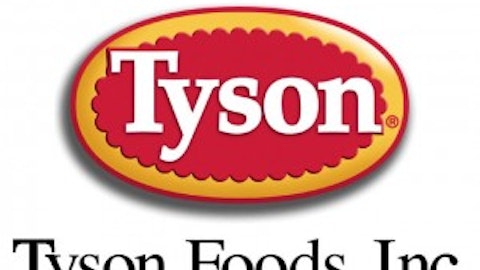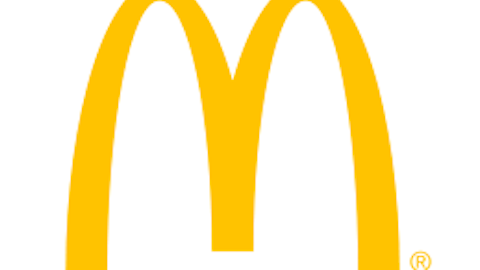
What’s wrong in China?
Over the past few years Chinese buyers have been facing a decline in the quality of products offered to them. There have been constant reports of finding contaminated milk or faulty car components, and this has really annoyed Chinese buyers. Finally, the authorities had to take serious steps to do a quality check of the products offered in the Chinese market. The General Administration of Quality, Supervision, Inspection and Quarantine in China has also introduced laws which hold manufacturers responsible for any faulty products offered by them in the market. This new laws have had their mark on different companies, and Yum! Brands is no exception.
Effect on Yum!
The goodwill of Yum! Brands, which operates thousands of KFC restaurants in China, has suffered badly during the investigations by the Chinese food regulations which took place after media reports alleged that excess antibiotics and hormones were found in some chicken products sold at KFC outlets. After this negative publicity, sales declined sharply as Chinese consumers refused to visit KFC stores.
The company that got about 44% of its revenue from China last year reported a significant decline in their KFC sales in its fourth quarter earnings. Net income for the fourth quarter slipped to $337 million from the net income of $356 million that the company earned last year as the same store sales in China declined 6%. However, Yum! is definitely not the only company that is suffering. Companies across all segments, ranging from carmakers to dairy importers, are facing a pinch of the newly laid rules in China. Recently, the world’s largest automaker, Toyota Motor Corporation (NYSE:TM), had to recall 22,869 Lexus cars in the country because those cars had defects with windshield wipers. This was quite a loss for the company, who was already suffering after their September sales tumbled 49% in China as the Chinese consumers were not willing to buy Japanese cars due to the territorial dispute between Asia’s two largest economies.
While Yum! suffered in China due to this latest food scandal, its business in other parts of the world did pretty well.
What about other regions?
Yum!’s same store sales increased 3% in US, 24% in India, and 3% at other international stores. To increase sales in the US, the company has come up with some new advertising strategies to attract budget-conscious customers. Yum! has also come up with some new pricing strategies to survive in the competitive market. Its competitor McDonald’s Corporation (NYSE:MCD) introduced their dollar menu in the US, thanks to which the company’s sales rebounded, resulting in a 1.4% rise in their fourth quarter profit. Soon after MCDonald’s started advertising their dollar menu, to attract budget constraints customers, Pizza Hut came up with its $10 for any pizza and $19.99 for a big dinner box campaign. Taco Bell has also introduced a 12 pack of tacos. With all these new marketing strategies the company successfully boosted its top line.
Thus, though Yum! suffered in China, with a total of 38,200 restaurants worldwide, of which about 20 percent are owned by the company, its all-over revenue increased by 1% to $4.15 billion in the quarter.
What’s next?
China has always been a very important market for Yum!, as not only does the company earn most of its revenue from the country, but it has also placed big bets for the company’s future growth in the world’s second largest economy. Thus Yum! will surely not let go off the entire Chinese market so easily. The investigations conducted by a third party agency from 2010 to 2011 found eight batches of chicken supplied to Yum! by Liuhe Group had antibiotics levels that didn’t meet prescribed standards, and Yum! has already stopped buying from Liuhe. Also to regain the customer confidence and to reassure them of the safety of its food, the company will start a brand reputation quality campaign, along with “aggressive marketing plans.”
Yum! already operates more than 4,200 KFC restaurants and 800 Pizza Huts in China, and also plans to open at least 700 stores in China. The company is not only looking to regain its lost empire, but even planning to expand. Yum! is confident of wooing back its lost customer base and continue milking the cash cow that is China, the second largest economy in the world with the highest market potential.
Foolish take away:
The latest food scandal has made Chinese consumers skeptical about the quality of food served at Yum!’s KFC restaurants. Gaining this confidence back will definitely be a hard, but not impossible, task for Yum!. The company expects sales at restaurants opened for at least a year in China to drop by 25% in the first two months of 2013. The company also doesn’t expect to have a growth in its EPS for the coming year. However, I personally don’t think Yum! will lose the battle. It’s definitely a bad phase for the company in China, but with its latest branding strategies and brand reputation quality campaign, the company might be able to regain its lost customers’ confidence. Also even in the midst of the setbacks Yum! still has plans for further business expansions. Also, its strong performance in other parts of the world might help the company maintain its position in the market. Investors should definitely keep an eye on this stock.
The article The Not So Yummy Time in China originally appeared on Fool.com and is written by Satarupa Bose.
Copyright © 1995 – 2013 The Motley Fool, LLC. All rights reserved. The Motley Fool has a disclosure policy.





